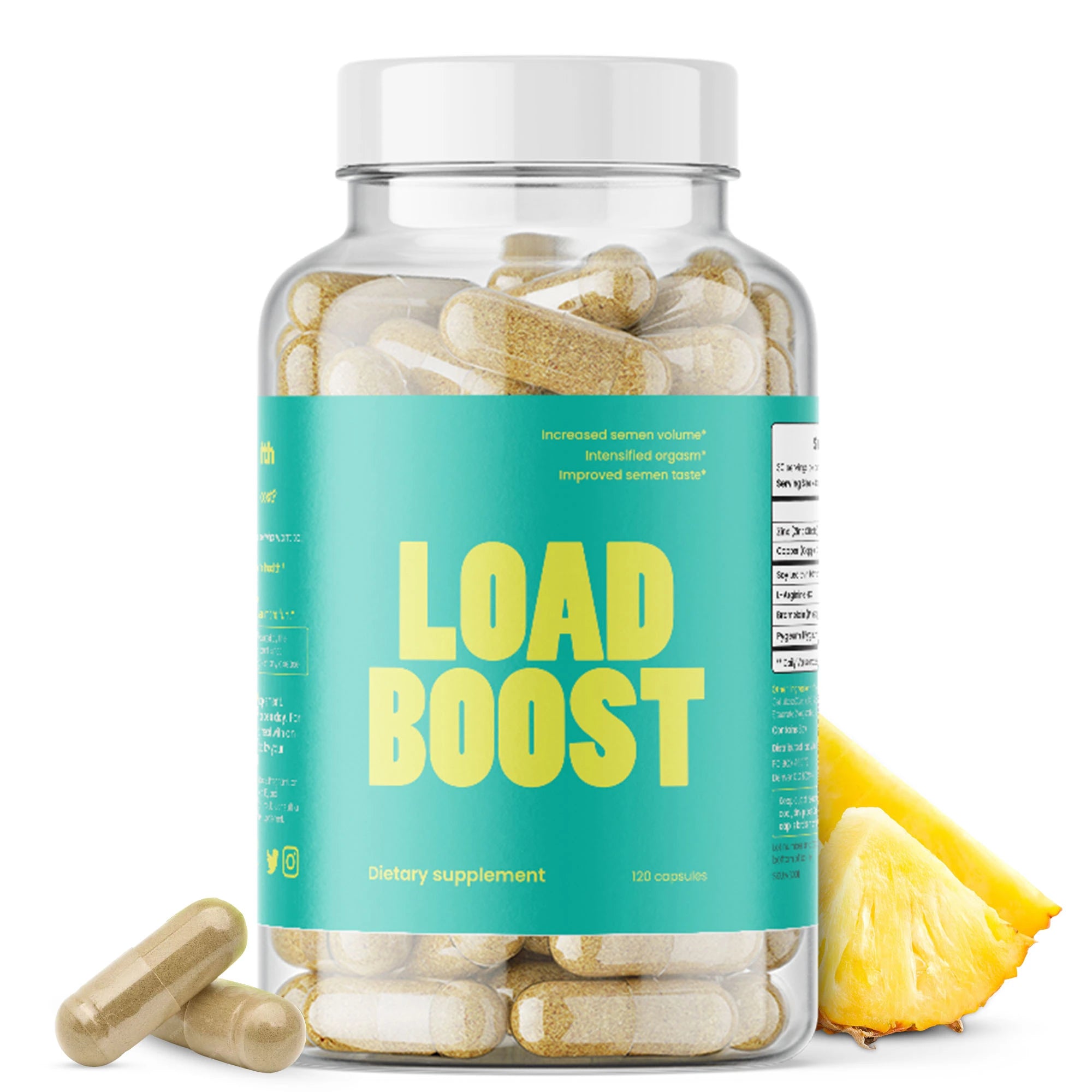Semanoid, marketed by Male FX Labs as a semen volume-enhancing supplement, contains a cocktail of popular herbal extracts and vitamins. But do these ingredients actually support the product's bold claims, or are they simply trying to mimic other products?
Ingredients vs. Evidence: What's Actually Effective?
When it comes to increasing semen volume, medical literature points towards specific nutrients that can have an impact—primarily zinc, pygeum, and other vitamins. But many of Semanoid’s chosen ingredients, despite their popularity in sexual health supplements, don’t directly relate to semen volume enhancement:
- Maca Root: While traditionally known to increase libido and potentially sperm motility, studies haven’t definitively demonstrated its effectiveness in increasing semen volume itself. Most evidence focuses on libido and fertility rather than volume increase (Gonzales et al., 2002).
- Horny Goat Weed: Known primarily for its potential to boost libido and blood flow due to icariin content. However, no clinical studies directly link horny goat weed to semen volume increases.
- Mucuna Pruriens: This herb contains L-DOPA, known to boost dopamine and testosterone levels, potentially improving sperm quality (Shukla et al., 2010).
- Saw Palmetto: Primarily studied for prostate health and reducing benign prostatic hyperplasia (Wilt et al., 2002). No credible evidence suggests saw palmetto increases semen volume.
- L-Arginine: An amino acid widely used for improved blood circulation and erectile function (Stanislavov & Nikolova, 2003).
- Panax Ginseng: Associated with general vitality and libido improvement (Jang et al., 2008), but no direct evidence supports enhanced semen production or volume.
- Tongkat Ali: Popular for testosterone support and libido enhancement, studies primarily link it to sperm quality improvement, but again, evidence for semen volume is lacking (Tambi & Imran, 2010).
- L-Carnitine & L-Lysine: Both amino acids play a role in sperm motility and health (Lenzi et al., 2003), but studies do not clearly support their role in enhancing semen volume.
- Polypodium Vulgare: An herb with limited research in sexual or reproductive health; its inclusion here appears arbitrary, lacking peer-reviewed evidence.
The majority of ingredients listed focus more on libido and erection quality, not specifically semen volume.

The Zinc Problem: Too Much of a Good Thing?
The one clearly quantified ingredient in Semanoid—zinc sulfate at 50mg—is troublingly high. The National Institutes of Health (NIH) notes that the safe upper limit for daily zinc intake is around 40mg for adults, and chronic intake above 30mg can lead to adverse effects such as gastrointestinal distress and copper deficiency (NIH, 2021). Additionally, zinc sulfate has poor bioavailability compared to other forms such as zinc citrate or zinc gluconate. Thus, Semanoid’s formulation here could do more harm than good.
The Dangers of Proprietary Blends
Perhaps the most significant issue with Semanoid is the use of a "proprietary blend," a practice increasingly criticized by healthcare professionals. Proprietary blends allow manufacturers to conceal the amounts of individual ingredients, making it impossible to determine product safety, efficacy, and value.
Experts strongly advise consumers to avoid products that hide behind proprietary blends, as undisclosed quantities can mask under-dosed, overdosed, or ineffective formulations, raising significant safety and ethical concerns (Cohen, 2009).
A Scientifically Sound Alternative: Load Boost by VB Health
If enhancing semen volume is the goal, then consumers deserve a product backed by transparent ingredients and validated by credible scientific research. Load Boost by VB Health fits this description. Load Boost openly discloses all ingredient quantities, specifically focusing on ingredients with scientifically proven links to semen volume increases:
- Pygeum: Demonstrated in studies to significantly boost seminal fluid volume (Andro & Riffaud, 1995).
- Zinc: Included in a safe and bioavailable form at clinically effective doses to enhance semen quality and volume.
In independent research, users of Load Boost reported a measurable increase in semen volume, confirming the supplement’s effectiveness. Some users report being able to even cum harder.
Bottom Line: Skip the Hype, Choose Transparency
Semanoid by Male FX Labs falls short due to unsupported ingredients, potentially harmful zinc dosages, and a troubling lack of transparency. Consumers interested in increasing semen volume and improving sexual health are far better served by products like Load Boost from VB Health—clinically validated, transparently formulated, and scientifically supported.
References:
- Gonzales, G.F. et al. (2002). Effect of Lepidium meyenii (MACA) on sexual desire and its absent relationship with serum testosterone levels in adult healthy men. Andrologia.
- Shukla, K.K. et al. (2010). Mucuna pruriens improves male fertility by its action on the hypothalamus–pituitary–gonadal axis. Fertility and Sterility.
- Wilt, T.J. et al. (2002). Saw palmetto extracts for treatment of benign prostatic hyperplasia. JAMA.
- Stanislavov, R., & Nikolova, V. (2003). Treatment of erectile dysfunction with Pycnogenol and L-arginine. Journal of Sex & Marital Therapy.
- Jang, D.J. et al. (2008). Red ginseng for treating erectile dysfunction: a systematic review. British Journal of Clinical Pharmacology.
- Tambi, M.I., & Imran, M.K. (2010). Eurycoma longifolia Jack in managing idiopathic male infertility. Asian Journal of Andrology.
- Lenzi, A. et al. (2003). Use of carnitine therapy in selected cases of male factor infertility: a double-blind crossover trial. Fertility and Sterility.
- Cohen, P.A. (2009). American roulette: contamination of dietary supplements with pharmaceuticals. Journal of General Internal Medicine.
- NIH (2021). Zinc – Fact Sheet for Health Professionals. Office of Dietary Supplements, National Institutes of Health.
- Andro, M.C., & Riffaud, J.P. (1995). Pygeum africanum extract for the treatment of patients with benign prostatic hyperplasia. Wien Klin Wochenschr.




